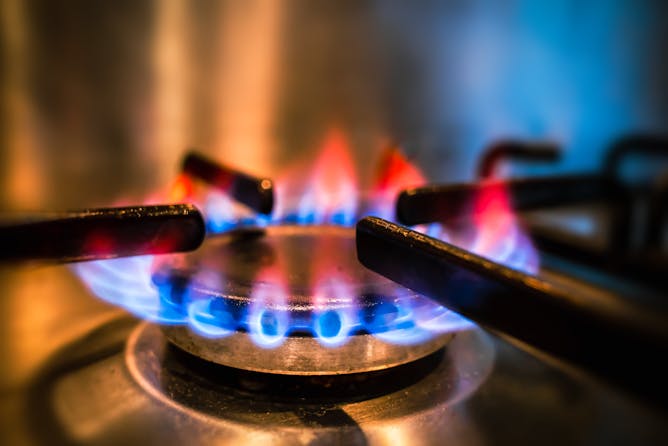|
Most people who know their way around their kitchen will be familiar with the “click, click, whoosh” sound of gas burners igniting. Even those who aren’t will have likely watched a cooking show on TV and seen chefs adjusting the flames under their pans to get just the right level of heat. Thanks partly to industry marketing, gas has long been seen as the cook’s fuel of choice.
Now, though, that reputation is sputtering. Natural gas use contributes to climate change – and as Boston University environmental health scholar Jonathan Levy explains, it also generates indoor air pollutants that can worsen asthma and other lung ailments. You may not need a new stove, but make sure your kitchen is well ventilated, even if that just means opening windows.
Today we also want to make you aware of an important change to commenting on our website. Starting immediately, we will be opening comments on a smaller selection of stories each day. This decision was driven by a need to more actively monitor comments to make sure they are respectful, constructive and comply with our community standards. We continue to value input from our readers, and we welcome feedback on this policy at this email address.
Also today:
|

A growing body of research suggests that gas stoves can pose health risks, especially for people with respiratory ailments.
Sean Gladwell/Getty Images
Jonathan Levy, Boston University
Natural gas has been marketed for decades as a clean fuel, but a growing body of research shows that gas stoves can contribute significantly to indoor air pollution, as well as climate change.
|
Health + Medicine
|
-
Paul Shafer, Boston University; Kristefer Stojanovski, Tulane University
Judge Reed O'Connor ruled in a case that coverage for HIV prevention medicine PrEP violated the religious freedom of the plaintiffs. It is unclear whether the order will extend nationwide.
|
|
Environment + Energy
|
-
Emily E. Schlickman, University of California, Davis; Brett Milligan, University of California, Davis; Stephen M. Wheeler, University of California, Davis
Managed retreat is already common in flood-prone areas, but what about in neighborhoods at high risk from wildfires? Here are four ways communities can pull back for safety.
|
|
Education
|
-
Nir Kshetri, University of North Carolina – Greensboro
There are benefits to taking college classes in the metaverse, but there are also potential problems.
-
Christopher Burnett, University of Houston
Colleges must notify students when the school is placed on probation by its accrediting agency. Do students respond by staying away?
|
|
Ethics + Religion
|
-
Mara Leichtman, Michigan State University
A variety of cultural performances evoking intense emotions occur during the Islamic month of Muharram. A scholar observed the processions on Ashoura in northern Tanzania.
-
Mathew Schmalz, College of the Holy Cross
The Catholic Church’s membership numbers are growing fastest outside Europe and the Americas, and Catholics’ priorities look very different across the world.
|
|
Politics + Society
|
-
Najmedin Meshkati, University of Southern California
The power plant’s sixth reactor has been shut down, all but eliminating the risk of a nuclear meltdown. But fighting at the site could still release radioactive material.
-
Matt Williams, The Conversation; Howard Manly, The Conversation
The balance of US political power is at stake in the 2022 midterm elections. Voters have several ways to cast their ballots – and the majority of Americans are choosing one of them.
|
|